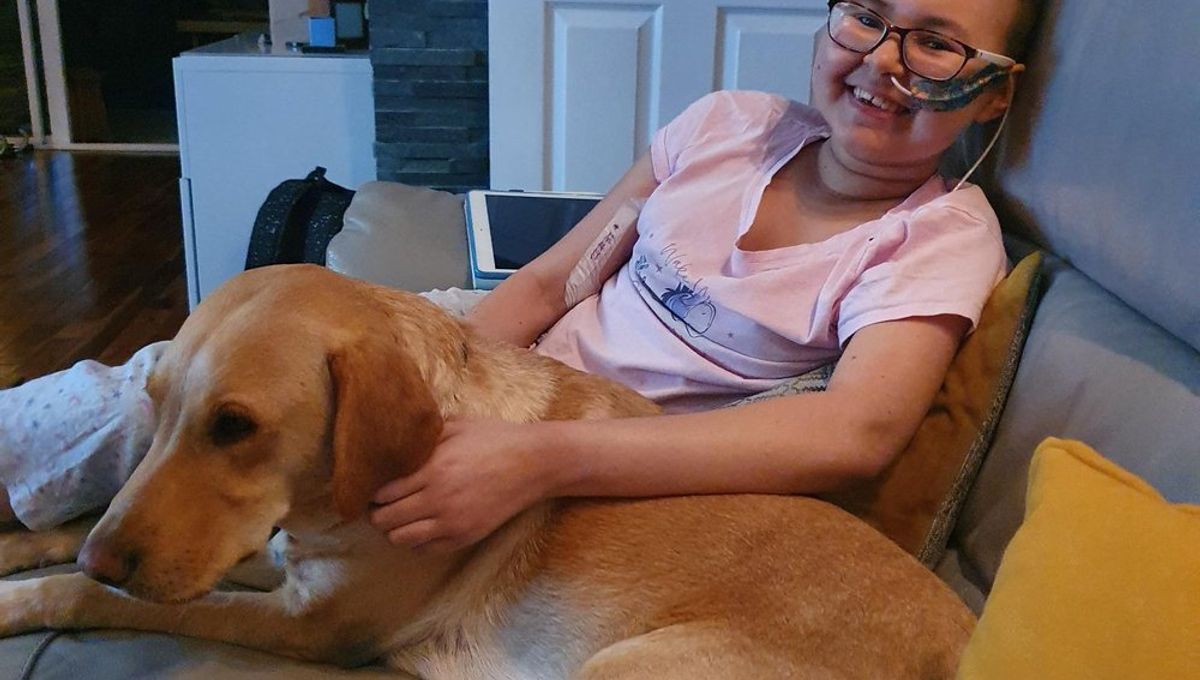
Thanks to a new experimental gene therapy, one teen’s previously incurable leukemia is now entirely undetectable, marking an incredible breakthrough in genetic immunotherapies. Alyssa, 13, from Leicester in the UK, was told that the only remaining options were end-of-life care to ensure she was comfortable as the aggressive T-cell acute lymphoblastic leukemia took hold – but the experimental CAR-T base editing therapy was able to modify her immune system to clear all detectable cancer cells.
T-cell lymphoblastic leukemia is a type of cancer that affects T-lymphocytes, an immune white blood cell that is created in the bone marrow. In this type of fast-moving leukemia, these cells divide uncontrollably and enter the bloodstream, traveling to the liver, spleen, and lymph nodes. This can cause death in a short span of just months or even weeks without treatment.
Currently, standard care procedures involve chemotherapy and a bone marrow transplant, which is an infamously difficult procedure. In Alyssa’s case, both of these treatments failed.
As Alyssa had tried both prior treatments and had no remaining options, she was eligible for an experimental CRISPR-based therapy.
Chimeric Antigen Receptors Cell Therapy (CAR-T) is an individualized, incredibly new technology. It involves taking a sample of T-cells, which are usually integral in the body’s immune defense, from the patient and reprogramming them one DNA base at a time to fight back against the cancer. Each cancer is different and so each CAR-T therapy is different, making it a difficult but highly promising avenue for individualized cancer treatments.
It differs from your typical genetic editing because most rely on the body’s own cellular machinery to repair DNA in the desired way when it’s snipped by scientists, whereas CAR-T targets each individual base and changes them directly. It’s delicate work, but less error-prone.
For Alyssa, the treatment involved multiple stages. First, her T-cells were modified to not target Alyssa’s own cells, preventing auto-immune complications; then they removed CD7, an important cellular marker on all T-cells; next, they protected the engineered cells from chemotherapy; and finally, the new T-cells were targeted towards any cell presenting CD7.
This way, they wouldn’t destroy themselves, but they would annihilate any other T-cells in the body – it’s a full scorched-earth approach that kills all T-cells and takes the cancerous ones with them.
Once her immune system was essentially wiped out, Alyssa received a second bone marrow transplant to rebuild it from the ground up.
Alyssa now has no detectable cancer cells, though scientists and her family remain cautiously optimistic as there is still the chance of reoccurrence. She is just the start of a multi-patient trial, with up to nine more people expected to receive it soon – but for Alyssa, the therapy may have just saved her life.
“Since Alyssa got sick with her leukaemia in May last year, she never achieved a complete remission. Not with chemotherapy and not after her first bone marrow transplant,” said Dr Robert Chiesa, Consultant in Bone Marrow Transplant and CAR T-cell therapy at GOSH, in a statement.
“Only after she received her CD7 CAR-T cell therapy and a second bone marrow transplant in GOSH she has become leukaemia free. This is quite remarkable, although it is still a preliminary result, which needs to be monitored and confirmed over the next few months. The entire team here at GOSH are extremely happy for Alyssa and her family and it’s been a privilege to work with them over the past few months. We have been very impressed by how brave she is and nothing makes me happier than seeing her outside the hospital, going back to a more normal type of life.”
Source Link: Experimental Gene Therapy Cures Teen's "Incurable" Cancer